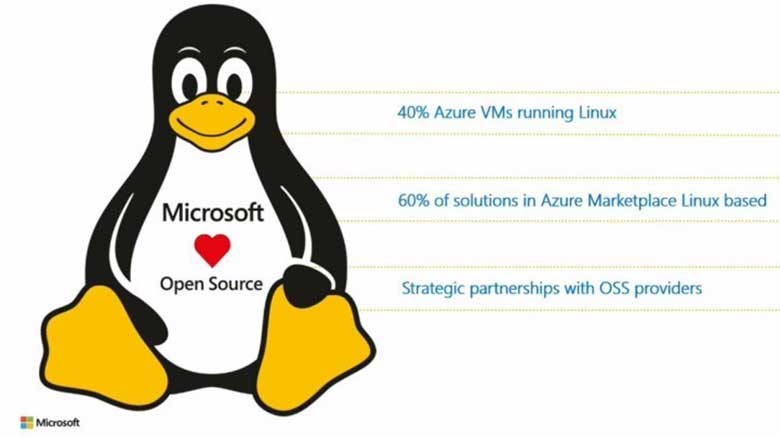Article Common misconceptions about Azure cloud

By Insight Editor / 9 Jul 2020 / Topics: Cloud , Microsoft Azure
Author: Jurjen Uijttenboogaart
Solutions Sales Specialist – Azure, Insight Enterprises
Microsoft Azure is the first choice for many Service Providers when they decide to move to the cloud. By taking this next step in service delivery, they can incorporate the benefits of the cloud, such as scalability, cost effectiveness, agility and innovation, into their business models and pass them on to their customers in a competitive offering. However, there is also skepticism about the cloud. Persistent beliefs that keep going round. Let’s take a look and show them in their true light.
Azure means lock-in
"When you start with Azure, you give everything away to Microsoft and you never get rid of it.” For me, that's really an old story. Unlike what it might have been like ten years ago, Microsoft has become a much more open organization and works with many other parties of any origin. In addition, Azure itself is a platform on which anyone can develop and program. What's more, the flexible nature of the cloud means that you can always leave; you're not tied to multi-year contracts. For example, you can use Azure for extra capacity; if you no longer need the capacity, you can remove your workloads. So, a lock-in is old-school.
Azure does not support open source
"Azure doesn't help you if you use open source." One of my clients works with open source and recently wanted to run MongoDb, a popular database for modern apps. I advised Azure, but their reaction was: "That's not possible, is it? We have open source." Maybe it used to be this way, but it's long gone. More than 40% of Azure VMs are running Linux and 60% of solutions in the Azure Marketplace are Linux-based. Azure wholeheartedly supports open source. You can run Linux, Ubuntu, whatever you want. If even CEO Satya Nadellaa says "MS loves (Linux) open source", why hesitate?

Source: https://www.neowin.net/news/microsoft-40-percent-of-vms-hosted-on-azure-are-powered-by-linux/
Microsoft is not a leader in innovation
Admittedly, Microsoft was not known as an innovation house for a long time. But that too has changed. If you want to be innovative yourself, you can do that very well with Microsoft. Apart from their own development – Windows Virtual Desktop as a recent example – they also offer a lot of development services and tools through interesting acquisitions. As an example, all encryption languages are supported, DevOps is a service, just like APIs, bots and Internet of Things (IoT). The acquisition of software development platform GitHub indicates how much Microsoft cares about 'developer freedom, openness and innovation', again according to Nadella.
Azure puts safety and compliance at risk
"In the cloud, organizations are much more vulnerable to security and compliance issues." Really? Microsoft invests more than 1 billion USD in cyber security each year, has 3,500 security experts and more than 90 compliance offerings. Is there any single company that can match this to remain up-to-date with all the rapidly changing cyberthreats and compliance rules today? With Azure you have that certainty. Also in a hybrid environment. As an Azure customer you can run compliance reports, for GDPR for example, and get recommendations on what you can improve.
Azure is public cloud only
I regularly hear that if you choose Azure, you will completely migrate to the public cloud. Also not true: you have a choice. That's where the power of Azure lies: you choose what suits your own situation. For most Service Providers this is a hybrid cloud, where they combine their own data centre with additional services in Azure. Certainly at the beginning of their cloud journey. It can already be as easy and non-intrusive as some extra data storage in the cloud next to an existing on-premise data centre.
Azure is too easy…
Some Service Providers find Azure too easy. They wonder what their added value is when they bring customers to the cloud. Everyone can do everything themselves, can't they? The assumption is that their own data centre offers more opportunities for their customers. Only when they gain insight into the full potential in Azure, for example with optimization, does it become clear that Azure can offer much more value, which Service Providers in turn can translate into better service and lower costs for their customers.
… or too complicated
Others find the platform too complicated: it's only Powershell, no interface, a lot of encoding. Moreover, it is so broad: how do I choose what is appropriate for my situation? And suppose something doesn't work? Who will solve it? Who is responsible for what? I then often ask about the situation in their own data centre. Who is responsible if the hardware fails, they themselves, the supplier? And what are the actual costs of the on-premise data centre, including hidden costs such as space, electricity, cooling, staffing, etc.? Then it turns out that the private data centre often has just as much (or little) complexity as Azure.
Azure is…
There are many misconceptions about Azure. And they often stick around for a long time. The best advice I can give is to be objective and well informed about the possibilities the cloud offers you as a Service Provider and also your customers. Azure is what best suits your situation. Need any help? Just contact me for a talk.
For a quick overview of the common myths or explore the Insight Cloud Journey framework if you are interested in learning more about cloud adoption for Service Providers.